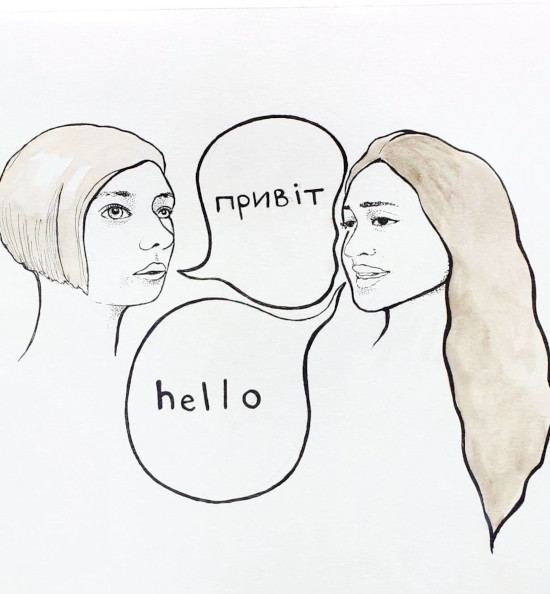What’s post-Soviet life like?
The Newcomer Explains

Illustration by Gabrielle Funk
Growing up in a post-Soviet country was an interesting experience. One of the things I remember is just how empty our apartment was.
The general deficit of products meant the beginning of the 2000s was not a very promising time. It was a time of poverty and uncertainty about the future.
Most of the things we had were the result of my father working abroad, as it was the only way he could access non-essential goods.
Trying to bring as much as he could, my father brought a TV with a VHS player and a CD player. While, in other countries, older models of such technology were already discarded, they were very welcome in the post-Soviet countries, where people would be glad to exchange their apartment for a VHS.
According to my parents, this time wasn’t the best, and they do not really like to think about it. But there were still good moments.
I remember quite well when relatives would come to us, just to listen to music. Quite often, they would bring their own CDs, and that was how I first listened to The Prodigy and Rammstein.
Some of the albums released during this time were fakes. There are many cases when somebody would sell something like The Castbreeder by The Prodigy, which is not an actual album created by The Prodigy but a compilation of songs by a similar artist named Junkie XL. People knew The Prodigy, and it was easier to compile different similar-sounding songs and sell them under someone else’s name.
At the time, most music and movies were pirated, as many didn’t have the income to buy official releases, nor were they available anywhere.
The dubbed bootleg movies always had a monotonous, nasal-sounding voiceover from the same people. While I was studying to become a translator, we would even look at some of these dubbed versions and find the mistakes, of which there were quite many.
Yet again, my father would bring the VHS tapes from Poland and other countries. I remember a lot of cartoons from tapes being in Polish or Czech and even one in Vietnamese.
Another unique product was the personal computer. The most popular PC systems of the post-Soviet countries in the ’90s were the ZX Spectrum and the Commodore 64, which were mostly used for studying and programming.
Getting a PC in the 2000s was quite a miracle where I lived and seen as a sign of wealth. Among all of my classmates, only two had computers in 2008. During that time, a lot of pre-owned laptops and PCs started being sold, but not everyone had an internet connection. I only got mine in 2011.
It is very surprising and amazing how people in post-Soviet countries now use the same technology as people in the rest of the world. In this, we see just how globalized and rapid the movement of commodities has become. The times of poverty and uncertainty are far behind, and the situation seems to be different. More and more, people can afford official releases and support artists.
Volodymyr Andreiko is a newcomer to Winnipeg from Ukraine. He is a translator and student at the University of Winnipeg interested in music, literature, philosophy and culture.
Published in Volume 78, Number 16 of The Uniter (February 1, 2024)






